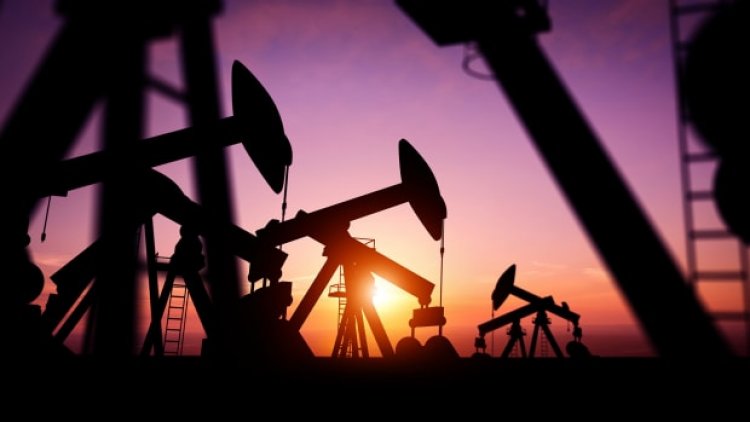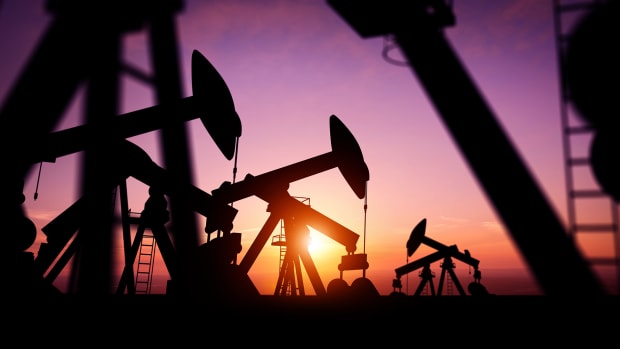Energy Industry Needs 'Significant' Investment, OPEC Secretary Says
OPEC Secretary General Haitham Al Ghais said energy industry needs more investment to meet growing demand soon.

OPEC Secretary General Haitham Al Ghais said energy industry needs more investment to meet growing demand soon.
The oil and gas industry needs a large amount of investment in order to meet growing global demand, OPEC Secretary General Haitham Al Ghais said on Tuesday at the CERAWeek conference in Houston.
There is a "significant shortfall" in the amount of money being invested into the energy industry, he said. Energy demand will increase by 23% as the global economy doubles in size, Al Ghais added.
Renewable power is not sufficient to meet rising global demand.
"There is no imaginable way renewables can do this," he said.
The "under investment" in hydrocarbons is concerning, Al Ghais said. Investing in the oil and gas industry now will promote energy security in the future.
Having the "right investments" is crucial since it can "take a long time to come into actual production" since the typical span is a "few years at best" and up to seven years before new projects come online, he said. Shutterstock
Energy Industry Needs Investment
The energy industry needs $12.1 trillion in capital investment for the upstream, midstream and downstream sectors of industry, which includes exploration and production, drilling, refining and shipping of oil and gas.
"Unless this happens I am afraid we will have issues for energy security and affordability," Al Ghais said.
The reduction in investments could be the result from ESG, investor lack of confidence or mixed messaging from the industry.
OPEC and its allies, a group known as OPEC+ remains "viable" because without its existence, there would be more instability and volatility and would not benefit producers, consumers, global economy or the oil and gas industry.
OPEC+ “is critical" and "important," he added.
Exports of Russia's crude oil being delivered to China, India and Turkey are not a "concern," Al Ghais said.
The redirection of the flow of oil is "not something that really concerns us" and is "typical," he said.
Russia's oil production has been "resilient and managed to find new homes," Al Ghais added.
The latest forecast from OPEC calls for demand to increase by 2.3 million barrels of oil a year with the majority of the rise in demand coming from China and India.
The market is divided with more oil supply needed in China and India while economic concerns and inflation have impacted demand in the U.S. and Europe, Al Ghais said.
He is "optimistic" but "cautiously" about China's reopening after covid-19 restrictions.
Al Ghais acknowledged that energy transitions are an "opportunity and not a threat" and already embraced by OPEC to meet the goals of the Paris agreement.
The technologies represent opportunities for businesses to thrive, to promote industries to reduce emissions and also chances for businesses to invest in these businesses.
Oil prices fell by at least 3.9% to $77.32 on Tuesday after the dollar strengthened by over 1%. Brent crude also declined by 3.4% to trade at $83.29.
Federal Reserve Chairman Jerome Powell increased fears of additional interest rate hikes. Stronger economic data will probably push the Fed to increase rates even more than it has previously planned, Powell told Congress on Tuesday.
China reported weaker economic data as both exports and imports during the past two months declined even though the government removed its covid-19 restrictions.
Oil Prices to Remain Volatile
Oil prices are likely to remain volatile as supply issues remain a concern. Chevron (CVX) - Get Free Report CEO Mike Wirth said there is "not a lot of swing capacity" for the supply of oil at CERAWeek.
The Organization of the Petroleum Exporting Countries has 13 member states and in 2016 the group became allies with other top non-OPEC oil-exporting countries to create OPEC+.
OPEC was created in 1960 with an original five members of oil-producing states as a way to keep the oil market steady, while making sure petroleum supplies are reaching the market in efficient and affordable ways.
Since its creation, OPEC has been the biggest impactor of oil supplies and pricing, because its current 13 members control almost 82% of the world's proven oil supplies.
What's Your Reaction?


























































